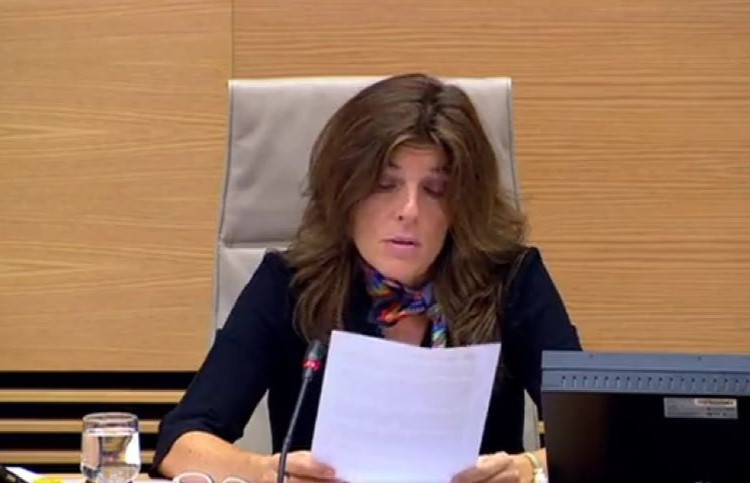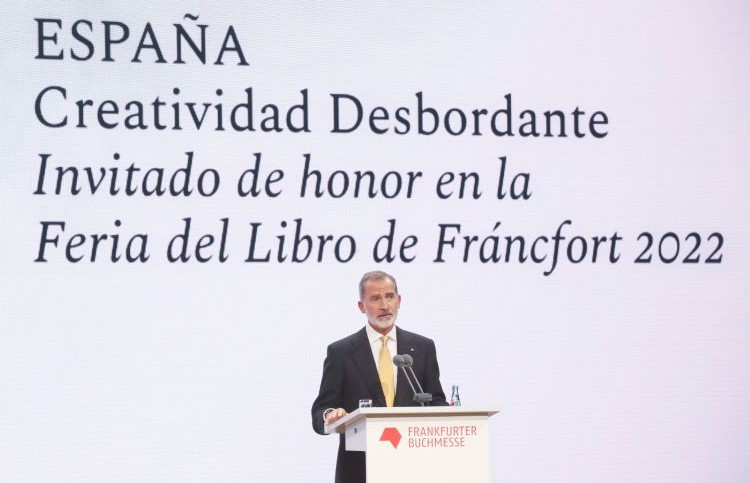The Diplomat
The Government sent last week a note verbale to the UN Human Rights Council to warn that Ceuta and Melilla are Spanish territory, after a letter sent by Morocco to this body came to light in which it stated that Spain and Morocco “do not have land borders” and described Melilla as an “occupied prison”, words that were later rectified by Rabat.
“I am not going to expand more on this. The sovereignty of Ceuta and Melilla is indisputable. They are Spanish territories, naturally, it is enshrined internationally,” assured yesterday the State Secretary for Foreign Affairs, Angeles Moreno, during her appearance before the Congressional Foreign Affairs Committee to explain the Ministry’s budgets in 2023, after the PP spokesman in the Committee, Percival Manglano, urged her to clarify the Government’s position on Morocco’s letter to the UN.
In her response, Moreno reported that the Executive of Pedro Sánchez sent last week a note verbale to the Human Rights Council to clarify its position, although she did not specify the exact content of the note, and recalled that the Moroccan Government itself was responsible for “denying” the statements contained in his letter to this UN body.
On September 9, the Moroccan government sent a letter to the UN Human Rights Council regarding the clarifications requested by this body on the “excessive and lethal use of force” against migrants of African origin during the events of June 24 at the Melilla border fence. In the letter, quoted by the Europa Press agency, Morocco stated that it is “inaccurate” to refer to “the separation line between Morocco and Melilla” as a “Spanish-Moroccan border” because “the Kingdom of Morocco has no land borders with Spain and Melilla is still an occupied prison, and for this reason, we cannot speak of borders, but of simple crossing points”.
After learning of this letter, the spokeswoman of the Popular Group in the Congress of Deputies, Cuca Gamarra, urged the President of the Government, Pedro Sanchez, in the plenary session of the Chamber, to say that what Rabat declares is “categorically false”. From his seat, Sánchez, responded flatly: “Ceuta and Melilla are Spain, period”. Subsequently, a senior official of Morocco’s own Foreign Ministry told Efe that the joint declaration signed between Morocco and Spain on April 7 recognizes that there are also “land borders” between the two countries.
The incident of the letter to the UN seemed to dynamite again the climate of understanding created between Madrid and Rabat, which last April began a new stage in the diplomatic relationship after the letter sent by Pedro Sanchez to King Mohamed VI stating that the Moroccan autonomy plan for the Sahara is “the most solid, realistic and credible basis” for a solution to the conflict.
In this regard, Angeles Moreno assured yesterday during her appearance in Congress that the new roadmap between Spain and Morocco is already giving “excellent results in all areas” and highlighted, among the “next milestones”, the holding of the High Level Meeting and the opening of commercial customs at the borders of Ceuta and Melilla.
She also assured that Spain’s desire is to maintain with Algeria “the same mutually beneficial friendly relationship that we maintain with all our neighboring countries, based on those same principles that include mutual respect and non-interference”. In this regard, Percival Manglan, assured that Spain’s relations with Algeria are, “I do not know if they are broken, but they are very damaged, and the fact is that it is now a preferential European partner”.







